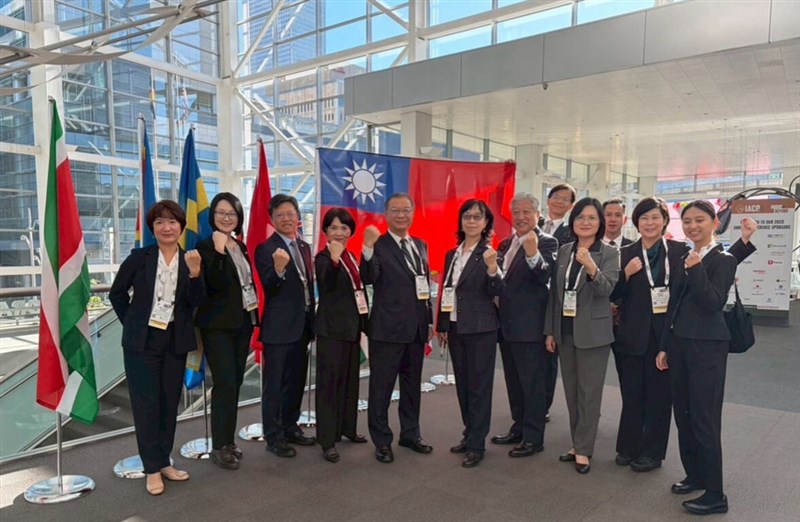
San Francisco, Oct. 20 (CNA) Taiwan's absence from the International Criminal Police Organization (Interpol) continues to create obstacles to international crime-fighting, Taiwanese officials said during an international police chiefs conference in the United States.
The Taiwanese delegation to International Association of Chiefs of Police (IACP) Annual Conference being held Oct. 18-21 in Denver, Colorado, was led by National Police Agency (NPA) Deputy Director-General Liao Hsun-cheng (廖訓誠).
During a presentation at the event, Lin Miao-ling (林妙齡), director of the NPA's International Affairs Division, said that excluding Taiwan from international cooperation "creates gaps and vulnerabilities in the global crime-fighting network."
At the IACP conference, which was attended by more than 16,000 public safety professionals, Taiwan's Criminal Investigation Bureau (CIB) International Criminal Affairs Division chief Lee Kun-da (李昆達) presented practical case studies from Taiwan's investigations into transnational crime.
"For decades, Taiwan has reminded the international community about the spread of telecom fraud operations in Southeast Asia," Lee said, adding that "serious damage could have been avoided if early warnings were received and prevention measures were taken."
Lee said Taiwan hopes to share crime related intelligence "in a timely manner" with international law enforcement counterparts but cannot make simultaneous notifications because it is "kept outside" Interpol, and can only share information with "countries that maintain good interaction" with Taiwan.
He added that in August, the Taipei Economic and Cultural Representative Office in the U.S. signed a memorandum of understanding with the American Institute in Taiwan to strengthen intelligence-sharing with the U.S. Drug Enforcement Administration.
"This cooperation helps demonstrate Taiwan's influence," Lee said, adding that it supports efforts to join Interpol.
Liao told CNA on Monday that "the only common enemy of law enforcement agencies around the world is crime."
Taiwan should not be "omitted" from Interpol, which forced Taiwan out in 1984 when China joined the organization, he said.
He said Taiwan has taken "a proactive attitude for many years" toward fraud crime prevention, and that other law enforcement officials "showed strong interest" in Taiwan's approach.
Taiwan's judiciary "is very willing to participate in international cooperation and exchanges," and evolving crime trends make intelligence-sharing "even more critical," according to Liao.
He also said the IACP event highlighted new technologies such as drones and video surveillance systems with identification functions that "can serve as references for future law enforcement in Taiwan."
- Society
- Sports
Brothers shut out Monkeys in CPBL Taiwan Series Game 3, trail 1-2
10/21/2025 09:57 PM - Cross-Strait
Taiwan must harden defenses; China invasion in 2027 unlikely: U.S. expert
10/21/2025 09:53 PM - Business
Yageo completes tender offer for Japanese firm
10/21/2025 09:45 PM - Society
4 Taiwanese entertainers released on bail for military service evasion
10/21/2025 09:23 PM